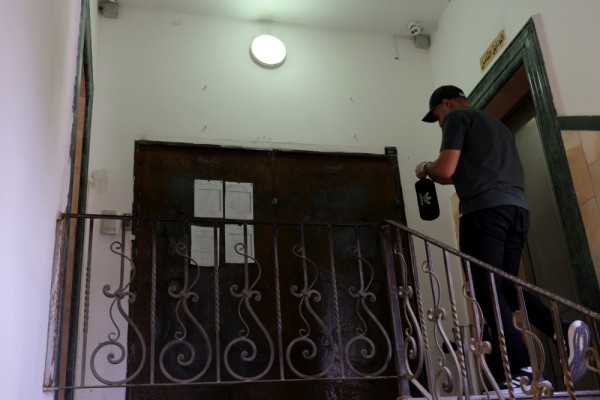On 1 September, British freelance journalist Ewa Jasiewicz decided to return to the United Kingdom after discontinuing a legal action before the Israeli Supreme Court. Jasiewicz made the decision because, if the court had found against her, it would have created a binding legal precedent for other foreign journalists entering Israel.
According to information from the British National Union of Journalists (NUJ), during the initial stages of the 1 September hearing, the Supreme Court appeared in favour of allowing Jasiewicz to enter Israel but wanted to ban her from the Occupied Territories. The Supreme Court then decided to hear evidence from the security forces ex parte, excluding both Jasiewicz and her legal team from the hearing and preventing them from understanding the true nature of the charges made against her. At this stage in the hearing, Jasiewicz decided to discontinue the case.
Jasiewicz, a reporter for the left-wing Red Pepper magazine, originally entered Israel on 11 August and was immediately detained by the authorities for her connections to a pro-Palestinian organisation called the International Solidarity Movement (ISM). The ISM is a non-violent organisation whose members have attempted to disrupt Israeli military operations in the occupied territories. Israeli security officials have described ISM as a “terrorist organisation.”
In a previous hearing before a district court in Tel Aviv, on 25 August, the court concluded that the Israeli authorities were entitled to refuse Jasiewicz entry because she might be “used” by terrorists. Israeli district judge, Dora Pilpel, apparently said, “I am denying her [Jasiewicz] entry not because she is a security threat but she might be used by others, because of her status as a journalist and her political and ideological beliefs, on her way to prevent what she calls fascism and racism.”
The comments of Judge Pilpel echoed earlier comments by the Israeli authorities. When the authorities detained Jasiewicz, on 11 August at Ben Gurion Airport, it was claimed the journalist was biased and that she had previously used an assumed name to enter the country. On 19 August, a judge ordered her release, but the Israeli authorities successfully overturned this decision with a judge ordering on 22 August that the district court in Tel Aviv hear the case.
IPI Director, Johann P. Fritz, said, “I am deeply disappointed that Jasiewicz was forced to halt her legal action out of fear of harming the chances of other foreign journalists entering the country. From now on, foreign journalist wishing to report on the Israeli/Palestinian conflict will be mindful that the Israeli authorities will be able to prevent them from entering the country.”
“I am also concerned that many of the decisions in the case were based on evidence that was not available to the defence. This creates a Kafkaesque situation in which individuals can be accused, found guilty and deported without ever knowing the reason. Jasiewicz was not considered a ‘security threat’ by the district court in Tel Aviv and, on this basis, it is difficult to understand why the authorities were able to exclude the defence from hearing its evidence.
“The case also raises all sorts of implications for media organisations, particularly regarding the way in which journalists practice their profession. In a democracy, it is not for governments to decide what journalists should or should not write; nor should governments have the right to decide whether that writing is biased. Such matters are the sole concern of the journalist and his or her media organisation. There is absolutely no need for a government to sit in judgement of this process,” said Fritz.


